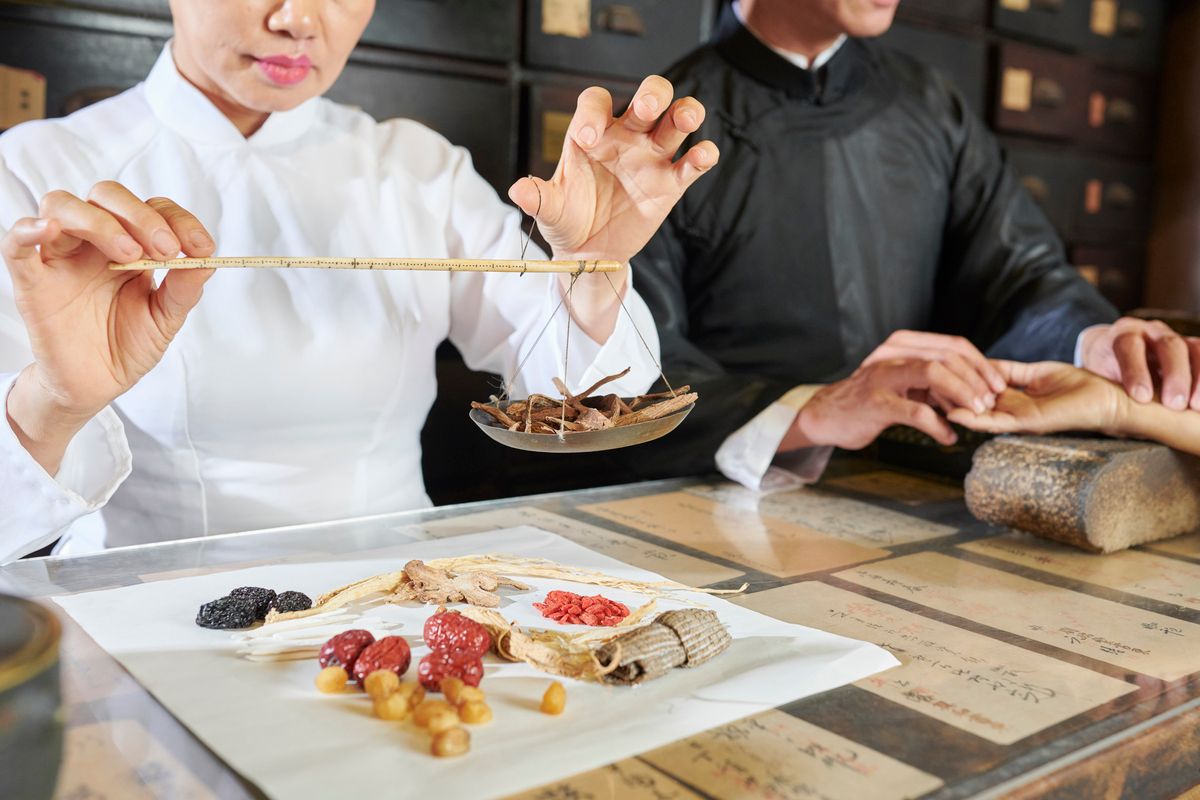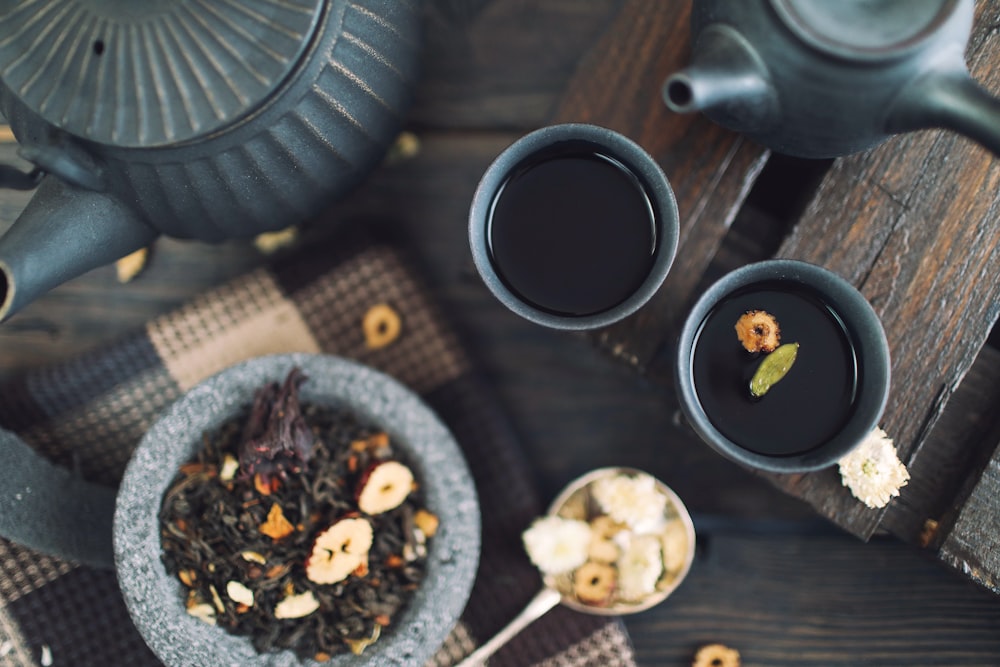
Traditional Chinese Medicine is an ancient form of medicine originating from China, and it recognizes the interconnected relationship of the body, mind, spirit, and nature. Traditional Chinese Medicine (TCM) is different from Western medicine for many reasons, especially since it focuses more on healing and emphasizes natural remedies more than Western medicine.
Traditional Chinese Medicine, as well as its principles and theories are a result of observations of the invisible world conducted by Qigong masters and TCM physicians through deep, meditative, spiritual journeys.
Through energy practice, these ancient practitioners were able to understand the body’s functions and map out connections to the law of the ‘Five Element Theory’ and cultivate their art of healing. To the skeptics, this healing practice is not devoid of any science. Thousands of years later, physicists describe the understanding of the principle of Yin and Yang as complementarity, which is one of the fundamental principles of quantum mechanics.
One of the main differences between Traditional Chinese Medicine and Western medicine is that TCM focuses on balancing your body and mind to cultivate well-being, while Western medicine focuses on treating physiological illnesses. As such, people utilize Traditional Chinese Medicine not only to fight diseases, but to proactively prevent it.
Central Ideas of Traditional Chinese Medicine
Traditional Chinese Medicine does not focus on science and medicine. Instead, it is based on non-tangible forces of nature such as balance, harmony and energy. Below are the two central ideas of Traditional Chinese Medicine:
Qi: Qi is the vital energy or life force that flows through your body. Stuck or stagnant Qi is the reason why we fall ill.
Yin and Yang: Yin and Yang describes the opposite qualities of Qi and must be kept in harmony.
Yin: night, dark, cold, negative
Yang: day, light, warm, positive
According to Traditional Chinese Medicine, when Yin and Yang are balanced, you feel relaxed and energized, however, when these energies are out of balance, you may feel negative health impacts.
For Yin and Yang to be balanced, Qi has to be flowing freely through your body. When there is too much or too little Qi coursing through the body’s energy pathways, or meridians, or when the flow of Qi is blocked, health issues may occur. The goal of Traditional Chinese Medicine practices is to balance the yin and yang and unclog stagnant Qi to create harmony and a healthy flow of Qi.

4 Key Principles of Traditional Chinese Medicine
Below are the 4 principles of TCM as described by the Traditional Chinese Medicine World Foundation:
1. Your Body is an Integrated Whole
Each part of your body works together seamlessly, as everything is interconnected. Your body, mind, spirit, and emotions form a complex organism that is powered by a vital life force.
2. You are Completely Connected to Nature
Whether it is seasons, geographical location, or time of day, our body reacts to changes in our natural environment. Nature is both healing and energizing.
3. You Have Natural Self-Healing Abilities
Nature has a regenerative capacity. It may not appear so, or it may be difficult at times, but we are always healing ourselves at our own pace.
4. Prevention is the Best Cure
Our body reveals our state of our health. However, we often don’t recognize the signs and symptoms of disease until it is too late. Traditional Chinese Medicine teaches us to be more attentive and intuitive to what we need, and what’s going on in our bodies. This can help prevent health conditions from becoming life-threatening.
Popular Traditional Chinese Medicine Practices
Traditional Chinese Medicine is practiced to help stimulate the body’s healing mechanism to balance out the Yin and Yang, and allow Qi to flow smoothly through different meridians. Below are the 4 main branches of Traditional Chinese Medicine practices and their functions:
Acupuncture and Acupressure
Practitioners insert thin needles to stimulate specific acupoints in the body with the goal to move stagnant Qi. Studies suggest that acupuncture can help with chronic pain such as low back pain, neck pain, osteoarthritis and carpal tunnel syndrome.
Chinese Herbal Medicine
A national survey found that one in five Americans use Chinese herbal products. Chinese herbal products have healing properties that target specific health issues. Herbal medicine can be taken in the form of pills, or boiled into soups or drinks.
Chinese Massage (Tui Na)
Chinese massage, or tui na, aims to stimulate the flow of Qi to produce balance and harmony. Tuina massage uses the same energetic meridians and acupoints to balance the Qi and blood in the body.
Chinese Exercises (Tai Chi, Qi Gong)
Chinese exercises such as Tai Chi and Qi Gong contain a flow of gentle movements, breathings and poses. Studies show that Tai Chi practitioners can improve balance and stability in older people and cope with chronic pain.

How Effective is Traditional Chinese Medicine?
Traditional Chinese Medicine is known to remedy a number of health problems that Western medicine sometimes fails to do. According to Mount Sinai, below are some of the conditions that Traditional Chinese Medicine can be helpful in resolving:
- Depression
- Diabetes and its complications, such as retinopathy (damage to the retina located in the back of the eye)
- High cholesterol
- Obesity
- Arthritis
- Back pain
- Male and female fertility disorders
- Alzheimer’s disease
- Parkinson’s disease
- Digestive disorders such as irritable bowel syndrome (IBS)
- Recurrent cystitis, inflammation of the bladder
- Nausea and vomiting
- Heart problems
TCM may also be an effective treatment for the following ailments:
- Allergies
- Asthma
- Cancer, especially colorectal cancer
- Stroke
- Sinusitis
- Addictions
- Pain, including childbirth and abdominal
- Menopausal symptoms
- Osteoporosis
- Infections (respiratory, bladder, vaginal)
- Sleep problems
- Stress
- Constipation
- Diabetic neuropathy
- Epilepsy
Who Should Use Traditional Chinese Medicine?
Whether you are looking to proactively care for your health, or seeking treatment for a specific health condition, it is ultimately your choice to make the decision to try Traditional Chinese Medicine. It may be worth a try if you:
- Have a lot of mild symptoms of a potential health problem, with no clear cause
- Need to treat side effects from drugs
- Prescribed Western medicine (prescription medication) but didn’t get desired results
- Want to proactively prevent illnesses
Who Should Avoid TCM?
Although there are plenty of benefits of trying Traditional Chinese Medicine, some people should be more careful when deciding to try TCM. This is because herbal products can have side effects such as altering the consistency of blood. This is because some Chinese herbal products are found to be contaminated with undisclosed plant or animal material, heavy metals, pesticides or compounds that can cause asthma or severe allergic reactions. Below are people who should be careful with trying Traditional Chinese Medicine:
- Elderly people
- Pregnant or breastfeeding
- Scheduled for surgery
- Taking other medication
- Children
The Bottom Line
Besides treating countless health conditions, Traditional Chinese Medicine reminds us of the importance of listening to your body and taking care of your health. However, Western scientists are still trying to understand the science behind TCM, and its effectiveness for treating various diseases. If you are considering trying out Traditional Chinese Medicine, look for a certified practitioner with certifications recognized by Accreditation Commission for Acupuncture and Oriental Medicine or National Certification Commission for Acupuncture and Oriental Medicine. Traditional Chinese Medicine should not be replaced for conventional treatment, but rather act as a complementary therapy. Lastly, it is best to consult your physician before trying Traditional Chinese Medicine.
As with any illness, disease, or any type of cancer, prevention is better than a cure. It’s easier to be cognizant of potential symptoms of serious illnesses if you find out which illnesses, cancers or diseases you’re genetically at higher risk of developing, through a CircleDNA test. Your genetics play a major role when it comes to which health problems you’re at risk of developing.







Comments are closed.